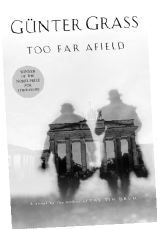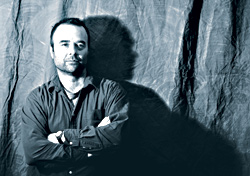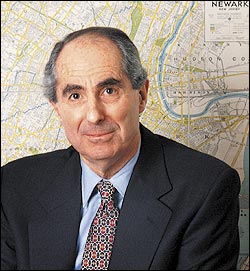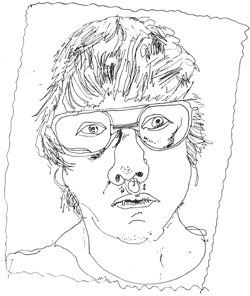GUNTER GRASS IS NO stranger to the large canvas. His playfully dour masterpiece The Tin Drum chronicled Hitler’s rise to power from the perspective of a grotesque hunchback. Grass’s 1977 novel The Flounder ranged across 4,000 years of culinary and sexual history. Last year, in the wake of his Nobel ceremony, the septuagenarian German writer toasted the world with My Century, a book of 100 stories that commemorated the waning 20th century. For American readers, Grass has always been a tad too political; we’ve never warmed to his work the way we have to, say, Thomas Mann or Heinrich Boll. However, for a writer in Germany, a country decimated by two world wars and a scarring rift, political detachment is akin to a moral crime.
Too Far Afield
by Gunter Grass, translation by Krishna Winston (Harcourt Brace, $30)
The problem with this aspect of Grass’ writing is that unless one has a superior grasp of the nuances of German history, his novels are as impenetrable as the former Berlin Wall. Nowhere is that frustrating gap in translation more apparent than in Too Far Afield, a brilliant doorstop of a novel that takes a critical look at what the nation lost in its rush to unify. As the novel begins, the Wall has just fallen, and two old men wander the former Republic as Lear did the heath, trying to recapture the past. Theo Wuttke is a former war corre- spondent, now employed by an agency guiding the former East Germany toward a free-market economy. Ludwig Hoftaller is a sinister yet kind-hearted man whose career as a spy harkens back to the 19th century. Together, the two men work in a building that used to house the Nazi Air Ministry.
The opening scene of this very long book offers its most stirring and poignant image. On his 70th birthday, Wuttke avoids his friends’ petty celebration by lingering before the husk of the Berlin Wall. As the sun sets, fledgling capitalists chip at the mortar with little chisels, picking off whole murals to sell to tourists who’ve never lived with the anguish of division. This ironic melding of past and present has surfaced in Grass’ fiction, but here it makes for tough going. Hoftaller and Wuttke often recount their reminiscences in magical-realist style, yet often, the allusions sail over our heads. Ancient ditties, old movies, and names of West German writers abound. Amid this swirl of imagery, the one element with immediate impact is the portrait of what it means to age, as a country and as a citizen. Wuttke and Hoftaller are anach- ronisms in a culture anxious to move forward. Grass seems to argue that in its eagerness to stake out the future, Germany willfully buries its past.








